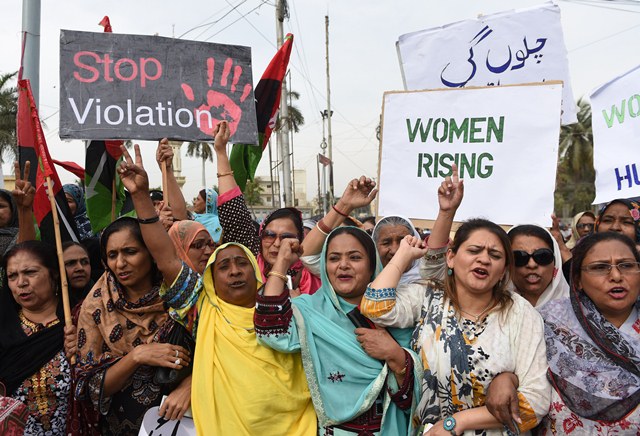- About
- Topics
- Story
- In-Depth
- Picks
- Opinion
- News
- Donate
- Signup for our newsletterOur Editors' Best Picks.Send
Read, Debate: Engage.
| topic: | Political violence |
|---|---|
| located: | Pakistan |
| editor: | Shadi Khan Saif |
About 300 miles away from Islamabad, Pakistan's capital, the Waziristan region is simmering with resurging terrorism in part caused by decades of governmental neglect. For several days, locals in the tribal belt have taken to the streets, marching against the state’s approach of ignoring the terrorist attacks that have led to deaths and suffering.
Over the past months, citizens of the region have been victims to increased violence, including hostage situations, suicide bombings and civilian attacks. And yet, the Pakistani authorities, engaged in corrupt leadership, have not turned their attention to the people’s frustrations with these assaults on human life.
There were similar public uprisings in the early 2000s when Pakistani locals witnessed the harbouring and facilitation of terrorists in the region following the US invasion of Afghanistan, which later resulted in a series of deadly attacks on Pakistan’s towns and cities.
This vicious cycle seems to be repeating itself as a complete media blackout is censoring the Waziristan protests, labelled as ‘Wolesi Pasoon’ in the local Pashto language, which means “public uprising.”
Undoubtedly, Pakistan, which is facing a possible default on its crippling debt to the IMF, would like to avert any political or economic crises that could destabilise its rule. But the violence and instability resulting from imprudent policies could hamper any goals of reviving the country’s economy.
Pakistan needs to embrace a governance model designed to serve the public - not ignore its safety and well-being. Much of the country’s legal and military regulations are still modelled from British colonial-era policies that were designed to subjugate and exploit the subjects.
This mindset is not helping anyone - the powerful army at the heart of power prism has had its image tarnished over the past years for its continued meddling in politics and exploitation of the country’s resources. While the country grapples with poverty and debt, many top military leaders have ended up retiring in foreign countries with a sudden wealth of unknown provenance, accumulated during their service in Pakistan.
Meanwhile, the huge potential of a naturally rich country with a vibrant youth population is being wasted.
Grassroot public movements and uprisings like the ‘Wolesi Pasoon’ in Waziristan are demonstrations of the people’s voice - the true owners and custodians of the lands. Under the latest tougher debt-repayment regimes, Pakistanis in all corners of the country have been forced to pay taxes beyond their capacity without an improvement in the job market or increase in their incomes. Pakistani officials should note that, when the state fails to provide services and ensure rights, not listening to the public is a recipe for political disaster.
Image by Gerry Popplestone

